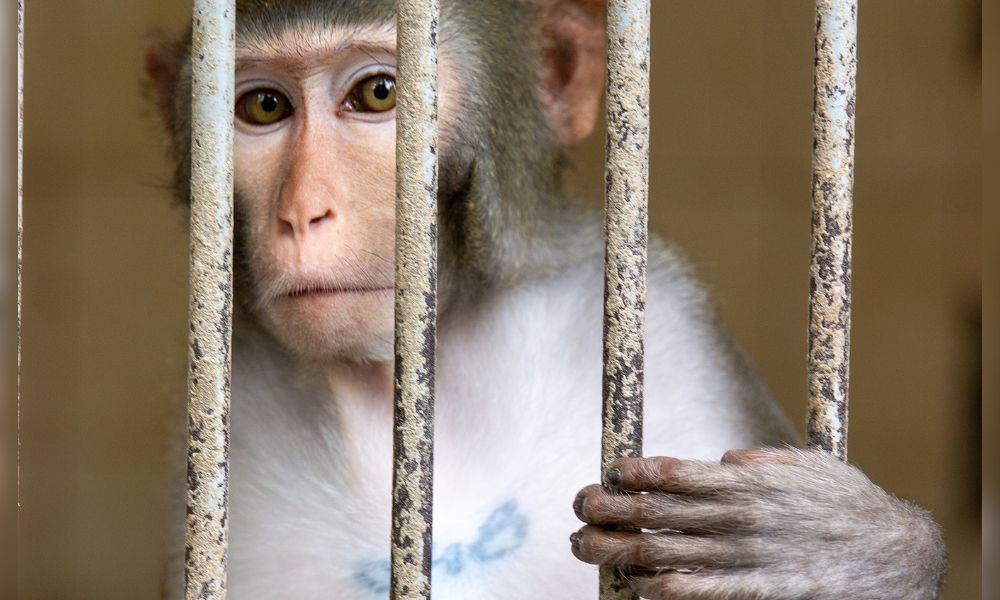PETITION TARGETS: National Institute on Alcohol Abuse and Alcoholism (NIAAA); University of Mississippi Medical Center Leadership
Rhesus monkeys are being forcibly addicted to alcohol —including via tubes invasively anchored into their stomachs — at the University of Mississippi Medical Center, and turning to self harm and other abnormal behaviors in their attempts to cope, according to documents obtained through public records requests by Lady Freethinker.
The documents show that researchers are cutting open the stomachs of anesthetized monkeys and implanting catheters so that — when they are awake — the monkeys can push levers in their cages and have alcohol pumped directly into their bodies. Other monkeys are confined to enclosures with drinking panels so they can self-administer alcohol.
The researchers noted that the highly invasive surgeries could cause “discomfort, distress, or pain” and also that forcing monkeys to ingest a “pharmacologically relevant alcohol dose” could yield sedation, poor muscle control, anxiety, and other impairment.
But the monkeys are suffering from much more than those anticipated side effects.
LFT obtained welfare records for 10 of the monkeys being forcibly exposed to alcohol and found signs of serious suffering and stereotypical behaviors — recognized by primate experts to be symptoms of severe psychological stress — in every single one.
The monkeys’ names are Mendel, Affen, Popcorn, Fly, Rooster, Louis, Farley, Goldie, Mourinho, and Finch. They’ve suffered from self-harming — including biting themselves — and other abnormal behaviors, including pacing, hugging themselves, grinding their teeth, and saluting.
They’ve also endured hair loss, nosebleeds, dermatitis, loose teeth, abrasions, wounds, lesions, vomiting, low body temperatures, swellings, agitation, and nausea from the protocols they’ve been forced to endure.
The alcohol addiction studies have been ongoing for at least 15 years and have consumed at least $1.8 million of taxpayer-supported funding since 2020 — with no direct clinical applications to date.
The experiments currently are funded and scheduled through at least July 31, 2025.
No defenseless monkey deserves to be forcibly exposed to alcohol or to endure such severe and ongoing distress that they resort to self harm.
The money wasted on these invasive and inhumane experiments could have been much better spent on ethical, human biology-based alternatives that could have helped suffering people.
The University of Mississippi Medical Center must end these invasive, expensive experiments and instead forge forward with human biology-based research — which has proven safer, more reliable, and more cost-effective for suffering humans who need effective treatments now. The NIAAA also must prioritize awarding grants to researchers committed to human biology-based innovations for the good of both nonhuman animals and people.
Sign our petition to speak up for these suffering monkeys today! Then take a moment to read LFT’s full story here.


